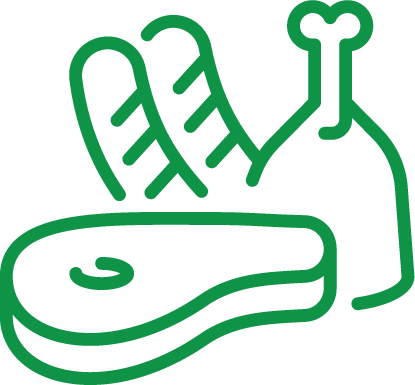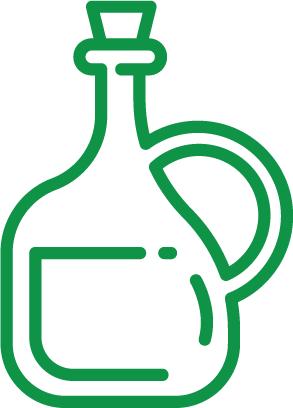Nourishing Minds: The Best Diet for Mental Health
The connection between diet and well-being is a topic gaining increasing attention. As mental health providers navigate the complex landscape of treating and supporting their clients, nutrition is an essential element to consider. Nutritional psychiatry is illuminating the profound impact that nutrition can have on mental health. It’s been well established that the mind and body are intricately connected, and what we consume has a profound impact on our mental health.
Researchers have been working to understand what foods best support mental well-being. The leading diet to support mental health is the Mediterranean diet. The Mediterranean diet is a dietary pattern inspired by the traditional eating habits of people in the Mediterranean region, particularly in countries like Greece, Italy, and Spain. It has gained popularity for its documented health benefits. It has been associated with reduced rates of heart disease, improved cognitive function, lower risk of type 2 diabetes, lower risk of certain cancers, including colorectal and breast cancer, blood pressure control, and reduced risk of depression and anxiety.
Below are some key characteristics of the Mediterranean diet:

Plant-Based Foods:
Fruits and vegetables are central to the Mediterranean diet, providing rich sources of vitamins, minerals, and antioxidants.

Whole Grains:
The diet includes a variety of whole grains such as whole wheat, oats, barley, and brown rice, providing a good source of fiber and nutrients.

Healthy Fats:
Olive oil is a primary source of fat in the Mediterranean diet. It is high in monounsaturated fats, which are considered heart-healthy. Nuts and seeds are also included.

Lean Proteins:
Fish and seafood are consumed regularly, providing omega-3 fatty acids. Poultry, eggs, and dairy products are also part of the diet, but in moderation. Red meat is consumed less frequently compared to many Western diets.

Moderate Dairy Intake:
Greek yogurt and cheese are common dairy sources in the Mediterranean diet, providing calcium and other essential nutrients.

Herbs and Spices:
Herbs and spices are used to flavor foods instead of excessive salt. This adds not only flavor but also additional health benefits.

Wine in Moderation:
Some versions of the Mediterranean diet include moderate consumption of red wine, particularly during meals. This is often limited to one or two glasses per day for men and one drink per day for women. However, it’s important to note there is no research out the safest limit for health is no more than two drinks per week.
The Mediterranean diet is often associated with several components that may contribute to better mental health. More research is needed to fully understand how and why this diet has been shown to benefit mental health. While the direct impact of diet on mental health is complex and can vary from person to person, there are some ways in which the characteristics of the Mediterranean diet may positively influence mental well-being.

Rich in Antioxidants:
Fruits and vegetables, which are abundant in the Mediterranean diet, contain antioxidants that may help protect the brain from oxidative stress. Oxidative stress has been linked to mental health disorders, and antioxidants play a role in neutralizing free radicals.

B Vitamins and Minerals:
In the Mediterranean diet, whole grains, nuts, and seeds are good sources of B vitamins and minerals like magnesium and zinc. These nutrients are essential for producing neurotransmitters, which affect mood regulation.

Omega-3 Fatty Acids:
Fish, a vital component of the Mediterranean diet, is a rich source of omega-3 fatty acids. These fats are essential for brain health and have been associated with a reduced risk of depression and other mental health issues.

Healthy Fats:
Olive oil, a staple in the Mediterranean diet, is high in monounsaturated fats. These fats are associated with improved cognitive function and may have neuroprotective properties.

Balanced Macronutrients:
The diet provides a balance of macronutrients, including carbohydrates, proteins, and fats. A balanced intake can help stabilize blood sugar levels, which is essential for maintaining energy levels and mood stability.

Enhanced Gut-Brain Connection:
The gut, often called the “second brain,” is a critical player in mental health. Incorporating probiotics and prebiotics into the diet can help restore balance, positively influencing mood and cognitive function. Fermented foods like yogurt, kefir, and sauerkraut are excellent sources of probiotics, while bananas, onions, and garlic provide prebiotics.

Low in Processed Foods:
The Mediterranean diet minimizes the intake of processed and refined foods, often linked to inflammation. Chronic inflammation is believed to contribute to mental health issues, so a diet that reduces inflammation may positively affect the brain.

Limited Caffeine and Sugar Intake:
While a moderate amount of caffeine can enhance alertness, excessive consumption can lead to jitteriness and disrupted sleep. Similarly, refined sugars can cause energy spikes and crashes, affecting mood and overall well-being. Moderation in caffeine and sugar intake can contribute to more stable energy levels and improved mental resilience.

Social and Lifestyle Factors:
The Mediterranean lifestyle emphasizes community, social interaction, and regular physical activity. These factors contribute to overall well-being and may have indirect positive effects on mental health by reducing stress and providing a sense of connection.
The Mediterranean diet has various health benefits, including improved heart health, weight management, and a reduced risk of chronic diseases. However, it’s important to note that the term “Mediterranean diet” encompasses a range of eating patterns, and individual variations may exist among people from different regions. Additionally, it’s crucial to consult with a healthcare professional or a registered dietitian before making significant changes to your diet.
It’s important to note that while diet is an essential factor, it’s just one aspect of a holistic approach to mental health. Other factors such as genetics, physical activity, sleep, and stress management also play crucial roles. Individuals with mental health concerns should seek guidance from healthcare professionals who can provide personalized advice and treatment options.
The journey toward optimal mental health involves a holistic approach, and diet is a fundamental pillar of this endeavor. Adopting a Mediterranean-inspired diet rich in omega-3 fatty acids, promoting gut health, practicing mindful eating, balancing macronutrients, staying hydrated, and moderating caffeine and sugar intake can collectively contribute to mental well-being. Perhaps Hippocrates said it best, “Let food be thy medicine, and let medicine by thy food.”
Ready to Learn More:
Ready to Learn More:

Listen to Season 5 of CASAT Conversations. In episode 4, Dr. Ted Dinan shares his decades of research findings and discusses how a nutrient rich diet can become a powerful tool in supporting mental health. He also discusses how certain foods and pharmaceuticals can negatively impact the gut microbiome and brain health. You won’t want to miss this important discussion highlighting the importance of food and mood.
References
Canadian Centre on Substance Use and Addiction. (2023). Canada’s Guidance on Alcohol and Health. Health Canada. https://www.ccsa.ca/canadas-guidance-alcohol-and-health
Harvard School of Public Health. (2023). Diet Review: Mediterranean Diet. The Nutrition Source. https://www.hsph.harvard.edu/nutritionsource/healthy-weight/diet-reviews/mediterranean-diet/#:~:text=Research%20supports%20the%20use%20of,also%20support%20healthy%20weight%20loss.
Mayo Foundation for Medical Education and Research. (2023). Mediterranean diet for heart health. Mayo Clinic. https://www.mayoclinic.org/healthy-lifestyle/nutrition-and-healthy-eating/in-depth/mediterranean-diet/art-20047801
National Institute of Health. (2023). Drinking Levels Defined. National Institute on Alcohol Abuse and Alcoholism. https://www.niaaa.nih.gov/alcohol-health/overview-alcohol-consumption/moderate-binge-drinking
Román, G. C., Jackson, R. E., Gadhia, R., Román, A. N., & Reis, J. (2019). Mediterranean diet: The role of long-chain ω-3 fatty acids in fish; polyphenols in fruits, vegetables, cereals, coffee, tea, cacao and wine; probiotics and vitamins in prevention of stroke, age-related cognitive decline, and Alzheimer disease. Revue neurologique, 175(10), 724–741. https://doi.org/10.1016/j.neurol.2019.08.005
Urquiaga, I., Echeverría, G., Dussaillant, C., & Rigotti, A. (2017). Origen, componentes y posibles mecanismos de acción de la dieta mediterránea [Origin, components and mechanisms of action of the Mediterranean diet]. Revista medica de Chile, 145(1), 85–95. https://doi.org/10.4067/S0034-98872017000100012
Ventriglio, A., Sancassiani, F., Contu, M. P., Latorre, M., Di Slavatore, M., Fornaro, M., & Bhugra, D. (2020). Mediterranean Diet and its Benefits on Health and Mental Health: A Literature Review. Clinical practice and epidemiology in mental health : CP & EMH, 16(Suppl-1), 156–164. https://doi.org/10.2174/1745017902016010156
Blog Post Tags:
Related Blog Posts
Related Learning Labs
Related Resources
.
- Buscar Tratamiento de Calidad para Trastornos de uso de Sustancia (Finding Quality Treatment for Substance Use Disorders Spanish Version)
- Finding Quality Treatment for Substance Use Disorders
- Focus On Prevention: Strategies and Programs to Prevent Substance Use
- Monthly Variation in Substance Use Initiation Among Full-Time College Students
- The National Survey on Drug Use and Health (NSDUH) Report: Monthly Variation in Substance Use Initiation Among Adolescents








